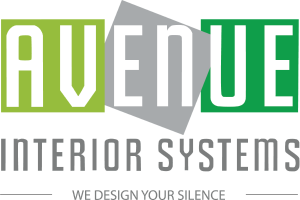Why good acoustics are crucial for employee and patient wellbeing
It’s no surprise that noise can heighten many patient’s conditions, especially those who have dementia, mental illness, or drug and alcohol addiction. These patients feel fear and mild anger, related to belief harm will come to them in a noisy environment.
Yet patients are not the only people impacted by hospital noise. Noise on the ward, in the ICU, or the emergency department also has negative impacts on the medical staff.
Hospital staff – including doctors, nurses, cleaners, wardspeople and more – were Australia’s unsung heroes. The COVID-19 pandemic brought to the fore the fantastic job this group of people do on a daily basis. So it’s important to address how noise affects them.
Speaking with a nurse from a local hospital highlighted how noisy their work environment is. During the day, the medical team have patients yelling – especially those who suffer dementia or mental illness. There is constant patient and staff chatter, shoes squeaking on vinyl floors, machines beeping, MET calls and many more noises. At the end of a shift, staff often complain about their ears ringing and experiencing fatigue.
Why are hospitals so noisy?
Increasing use of technology has caused much of the noise in modern medical facilities. Think about the sound of:
- Heart rate monitors
- Blood pressure machines
- Drips
- Oxygen machines
- Phones ringing
When multiple devices combine in a space, it can achieve annoying levels of sound. No wonder medical staff suffer “beep” fatigue! And that’s not all.
Other noises include:
- Sounds from patients (such as yelling, banging walls etc.)
- Squeaking shoes on hard vinyl floors
- Beds being pushed through doors
- The meal trolley and trays clanging
The impact of noise on hospital staff
For all their exceptional skills and patience, hospital staff are still human, and mistakes do happen.
According to a study carried out in an inner-city hospital emergency department in London, 83% of all communication with a head nurse in an emergency department is either face-to-face or via the telephone. 70% of critical medical errors in an emergency department are from communication shortcomings including multitasking and interruptions – such as from noise.
Table One: Communication channel
Type of communication channel | Number of communication events (%) |
Face-to-face | 1,528 (76) |
Telephone | 144 (7) |
Computer | 107 (5) |
Whiteboard | 104 (5) |
Pager | 35 (2) |
Patient records | 35 (2) |
Other | 26 (1) |
A study aimed to establish the difference in performance between working in a quiet environment and one with irregular bursts of background noise. It found that, when staff are performing a more manageable task, there are no significant differences in the results. However, when performing a complex task, participants were 50% less accurate in a noisy space.
Graph One: Simple v complex tasks with and without noise

How do hospital staff respond to excessive noise?
Due to noise, hospital staff:
- Can develop an annoyance response (irritation due to noise)
- Need to exert more energy causing more fatigue
- Have increased stress levels
Annoyance response
Anyone can experience an annoyance response to noise. One group of people you do not want to experience the response are the people caring for your health or your loved one’s health!
The reaction to noise may include apathy, frustration, depression, anger, exhaustion, agitation, withdrawal, or helplessness.
During a recent study looking at both poor and good acoustics, patients felt that staff attitudes were much better with good acoustics than during the period with poor acoustics.
The need to exert more energy
When background noise is excessive, medical staff must raise their voices to communicate effectively with patients and each other. This continuous need to raise their voice for perfect speech communication is tiring and causes unnecessary fatigue – leading to stress, overwork, illness, and errors.
Increased stress levels
Patients’ lives are in the hands of medical staff, which is why high stress levels are common for those working in the medical industry.
Too much noise changes the behaviour of not only medical staff, but also patients – creating an even more stressful situation for staff.
The critical consequences of too much noise in hospitals
It is easy to write about too much noise in healthcare being wrong, but without actual examples of the damage caused, its impacts can be difficult to comprehend.
Below are examples of real-life medical errors from the Pennsylvania Patient Safety Reporting System (USA) caused by mishearing and too much background noise.
- A nurse thought that a nursing student had stated the patient’s blood sugar as 257 when it was actually 157. The patient has given 6 units of regular insulin instead of 2 units of regular insulin.
- A phone order was mistaken for Toradol 50 mg instead of the intended dose of 15 mg, and administered before the pharmacy review.
- An emergency room physician verbally ordered ‘morphine 2 mg IV’, but the nurse heard ‘morphine 10 mg IV’. The patient received a 10 mg injection and developed respiratory arrest.
- A physician called in an order for ‘15 mg’ of hydralazine to be given via IV every 2 hours. The nurse, thinking that he had said ’50 mg’ administered an overdose to the patient who developed tachycardia and had a significant drop in blood pressure.
These examples are just a small selection of what can happen if communication among staff is unclear because of noise.
What can be done about excess noise in hospitals?
A well-designed healthcare facility includes acoustics and noise control. Solutions can be a combination of high-performing and aesthetic products, providing functionality, sustainability and décor.
For more information on the impacts of noise in the medical industry and how to fix it, get in touch with the Avenue team on 1300 827 177 to find out how we can help.



